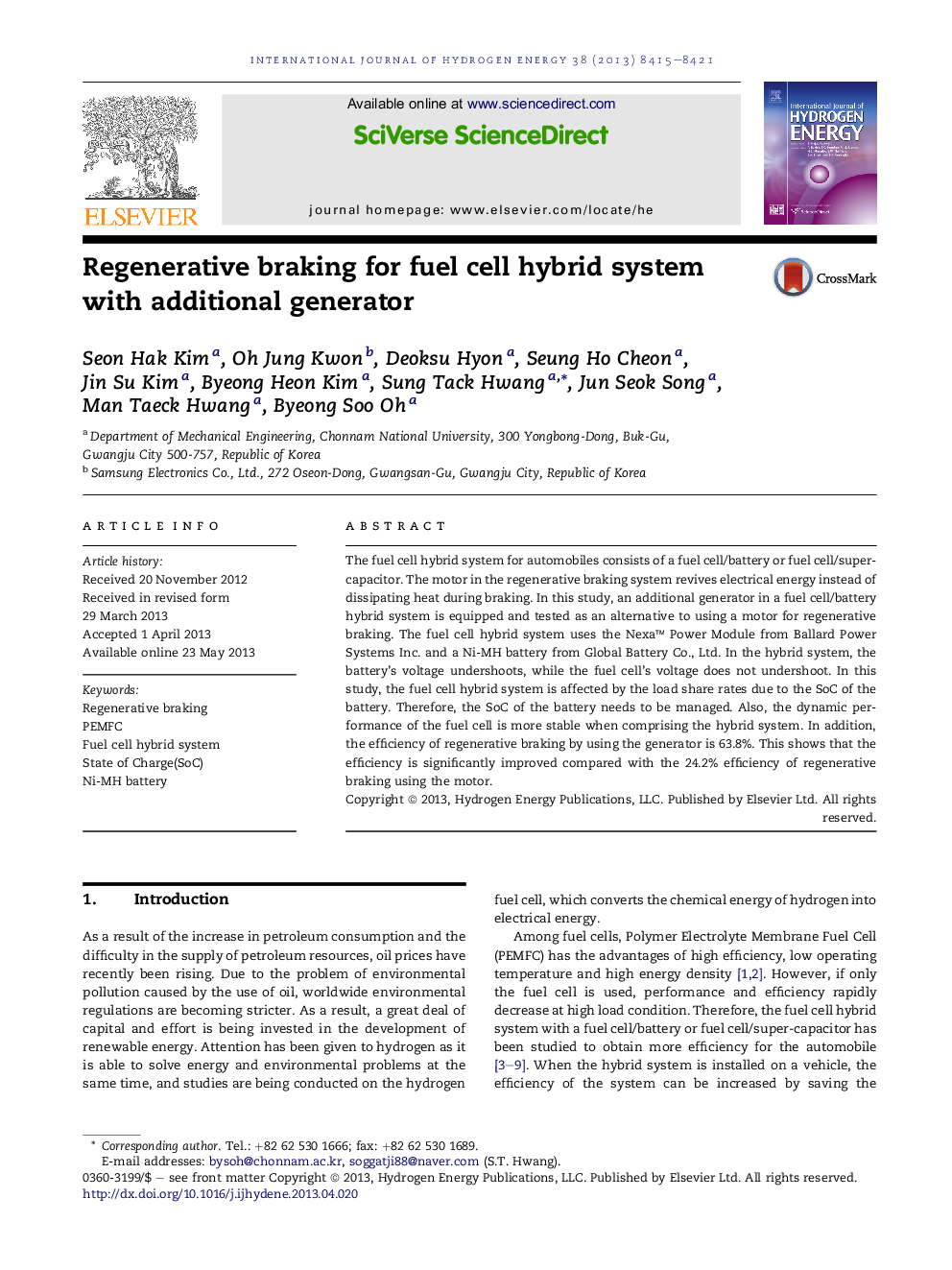| Article ID | Journal | Published Year | Pages | File Type |
|---|---|---|---|---|
| 7722679 | International Journal of Hydrogen Energy | 2013 | 7 Pages |
Abstract
The fuel cell hybrid system for automobiles consists of a fuel cell/battery or fuel cell/super-capacitor. The motor in the regenerative braking system revives electrical energy instead of dissipating heat during braking. In this study, an additional generator in a fuel cell/battery hybrid system is equipped and tested as an alternative to using a motor for regenerative braking. The fuel cell hybrid system uses the Nexa⢠Power Module from Ballard Power Systems Inc. and a Ni-MH battery from Global Battery Co., Ltd. In the hybrid system, the battery's voltage undershoots, while the fuel cell's voltage does not undershoot. In this study, the fuel cell hybrid system is affected by the load share rates due to the SoC of the battery. Therefore, the SoC of the battery needs to be managed. Also, the dynamic performance of the fuel cell is more stable when comprising the hybrid system. In addition, the efficiency of regenerative braking by using the generator is 63.8%. This shows that the efficiency is significantly improved compared with the 24.2% efficiency of regenerative braking using the motor.
Related Topics
Physical Sciences and Engineering
Chemistry
Electrochemistry
Authors
Seon Hak Kim, Oh Jung Kwon, Deoksu Hyon, Seung Ho Cheon, Jin Su Kim, Byeong Heon Kim, Sung Tack Hwang, Jun Seok Song, Man Taeck Hwang, Byeong Soo Oh,
